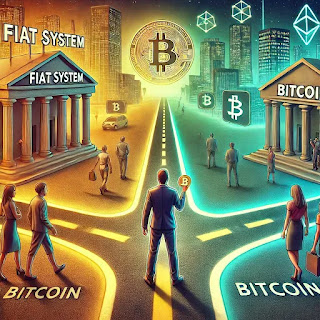Inflation’s Funhouse Mirror: Why Your House Isn’t Really Doubling in Value
The Great Housing Hallucination
Picture this. You’re sitting at your kitchen table, coffee in hand, scrolling through Zillow. There it is: your house. The one you bought fifteen years ago for $200,000 now proudly listed at $400,000. You smile, feeling like you’ve pulled off the ultimate wealth move. Your asset has doubled. You’re winning.
Except you’re not.
What looks like growth is really just a magic trick performed by the money printer. The illusion is simple. The dollar has lost so much purchasing power that your house appears to be worth more. In reality, it’s just the same house in a weaker currency.
Inflation Isn’t Just Prices Going Up
Most people think inflation means the cost of milk and gas creeping higher. That’s not the root cause. Inflation is the increase in the money supply. It’s when central banks create more currency units out of thin air, diluting the value of the ones already in circulation.
Prices rising is just the symptom. The real disease is monetary debasement.
If the money supply had stayed fixed, your $200,000 home might still cost around $200,000 in today’s money because the measuring stick (the dollar) would still be the same length. When the measuring stick keeps shrinking, everything looks bigger.
The Optical Illusion of Homeownership
Let’s run the numbers. You bought your home for $200,000 in 2010. In 2025, you’re told it’s worth $400,000. Sounds like a win, right? But during that same 15-year stretch:
The price of groceries doubled.
Cars cost 50-100% more.
Property taxes rose sharply.
Utilities are higher.
Insurance premiums climbed.
When you cash out and go to buy another house, you’re not really ahead. You’re just trading one inflated asset for another inflated asset.
The house didn’t magically get better. The kitchen didn’t expand itself. The roof didn’t turn into gold. What happened is the dollar bought less, so it looked like your house was worth more.
The Debt Incentive Trap
Here’s the kicker. Our system doesn’t just tolerate inflation, it incentivizes you to play along. In a fiat money world, debt becomes a tool and sometimes even a weapon. Real interest rates (interest rates minus inflation) often end up negative. That means if inflation is 6% and your mortgage is 4%, you’re effectively being paid to borrow.
This flips our natural instincts. Instead of rewarding savers, the system rewards spenders. Buy now, pay later. Why save up when the currency you’re saving is melting in your hand?
It’s not just bad economics. It’s a cultural shift. We’ve been trained to think in terms of instant gratification, high time preference, and living in the moment. Planning for the future feels almost pointless when the ground beneath your financial feet is quicksand.
High Time Preference Society
Economists talk about time preference: how much you value the present versus the future. High time preference means you favor now over later. Low time preference means you’re willing to delay gratification for a bigger payoff.
Inflation is a high time preference drug. It pushes you to spend before your money loses more value. It discourages saving and long-term thinking. The result is a society that leases everything, finances everything, and thinks about next month’s payment instead of the next generation’s prosperity.
The Real Danger
The problem isn’t that your house doubled in price. The problem is that people mistake this for wealth creation. They think they’ve beaten the game when in reality the rules have changed so subtly that they don’t even notice.
It’s like running a marathon on a treadmill and thinking you’re crossing the finish line. The effort feels real, but you’re not actually getting anywhere.
When the currency is constantly being devalued, everything denominated in that currency gets distorted. Housing, stocks, wages, and savings all become part of a hall of mirrors.
Bitcoin: The Anti-Illusion
Bitcoin flips this script. Fixed supply. No central authority deciding to “stimulate” the economy by printing more units. No shrinking measuring stick.
When you hold Bitcoin, your purchasing power isn’t at the mercy of a committee meeting in a marble building. Gains are real because the asset itself can’t be inflated away. Saving in Bitcoin rewards patience, not panic spending.
It’s a return to a low time preference mindset: build, save, plan. Not just for the next few years, but for decades.
Final Word
Your house didn’t get twice as nice. The dollar just got twice as weak.
In the funhouse mirror of fiat money, everything looks like it’s growing. But when you step outside and measure with something honest, something fixed, you see the truth.
When the measuring stick is warped, everything looks bigger. The real trick is making sure the stick doesn’t change in the first place.




Comments
Post a Comment